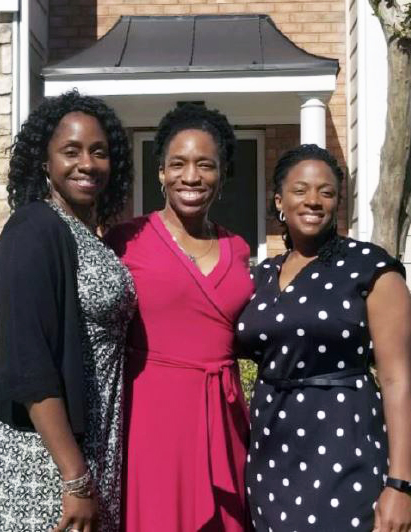Senyene Hunter, MD, PhD
DEI Spotlight

Dr. Senyene Hunter is a pediatric neurologist with an epilepsy sub-specialization. Born and raised in Orangeburg, South Carolina, Dr. Hunter earned her Bachelor of Science degree in Chemistry, followed by a Doctor of Philosophy in Biological Chemistry from the University of North Carolina at Chapel Hill. After postdoctoral research at Yale University and a fellowship at the National Institute of Environmental Health Sciences, NIH, she earned her Doctor of Medicine and completed a pediatric neurology residency at the University of North Carolina at Chapel Hill. She went on to complete a clinical neurophysiology fellowship at Duke University Medical Center prior to returning to UNC in 2020 as a clinical assistant professor.
Tell me about your career path.
My interest in research was peaked in college after my introduction to mitochondrial biochemistry. During graduate school and postdoctoral training, I longed to combine my research with a medical practice. I became interested in Translational Medicine while investigating mitochondrial biochemistry in graduate school at UNC. It was then that I decided to enter medical school to learn how mitochondrial diseases manifest in pediatric patients.
While in medical school, I was quite surprised to realize how much I enjoyed neurology. The complex pathologies in Child Neurology were intriguing and the patients were compelling. I approached each patient/family with empathy, thoughtfulness, and a renewed understanding of the need for personalized care. I also found that the field of serves as a unique setting for translational research.
Currently, my research focuses on increasing the understanding and improving the treatment of pediatric genetic epilepsies. My goal is to enhance the care and quality of life of children with genetic epilepsies. I choose to continue to practice medicine and work alongside colleagues at UNC because the institution fosters a supportive and collaborative environment without compromising academic excellence.
What elements of diversity, equity, and inclusion (DEI) are most important to you and your career?
Healthcare equity is important to my career as a clinician and a researcher. Healthcare equity requires that we not learn one strategy or standard and attempt to apply that to all patients. A personalized approach to healthcare necessitates that we understand how diseases and disorders individually impact each of our patients. Equity entails imparting that understanding to patients according to their needs to improve their care.
Were you a first generation or low-income college student?
 My parents came to the United States from Nigeria to pursue higher education, which they attained despite the obstacles they faced as non-citizens and persons of color. My parents taught my sisters and me to be strong and independent, and encouraged us to seek higher education. I always understood the wealth of opportunities that are available to me in the United States. This understanding built resilience, strength, and determination to achieve higher education and to obtain a successful career. I have maintained an excellent support system throughout my academic career. My support system ranges from family, friends, and mentors to my husband, who has remained my biggest champion.
My parents came to the United States from Nigeria to pursue higher education, which they attained despite the obstacles they faced as non-citizens and persons of color. My parents taught my sisters and me to be strong and independent, and encouraged us to seek higher education. I always understood the wealth of opportunities that are available to me in the United States. This understanding built resilience, strength, and determination to achieve higher education and to obtain a successful career. I have maintained an excellent support system throughout my academic career. My support system ranges from family, friends, and mentors to my husband, who has remained my biggest champion.
Do you have any advice about the college/medical school/postgraduate/ neurology experience that you would offer to trainees and colleagues who intend to go to graduate school to obtain a doctorate degree/other career path?
I have had the great fortune of having many people who have been supportive and have positively adjusted the trajectory of my career. Unfortunately, there were also a few people who, without knowing me or my aspirations, have suggested that I should not attempt to attain higher education or follow my desired career path.
My advice for future generations is to believe in yourself and your merits. Search for opportunities available to you. Knock on many doors with positive thinking and some doors will be opened to you. Be strong, be determined to work hard, and strive for your goal. Do not attend to those who are discouraging without just cause. Find professors, attending physicians, and mentors who are invested in your success.
